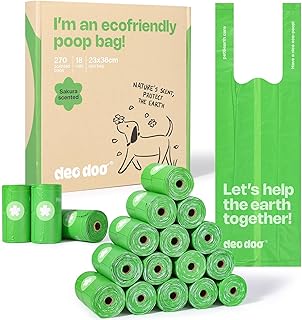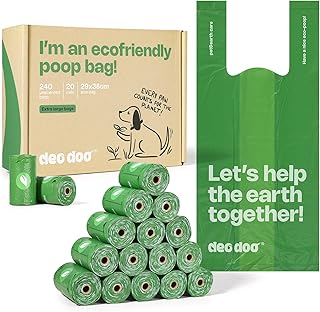When Laura Young welcomed Cooper the cavapoo into her life, she was determined to minimize the environmental impact of owning a dog. Being an environmental scientist, she understood the importance of choosing sustainable options, especially when it came to dealing with dog waste. Faced with a market offering a plethora of choices from traditional plastic bags to high-end eco-friendly alternatives, Young initially opted for compostable bags, despite her reservations about their effectiveness.
Compostable and biodegradable dog poop bags have emerged as popular alternatives to traditional plastic bags, promising eco-friendliness and reduced environmental impact. However, the reality is more complex than the labels suggest. While these bags are designed to break down under specific conditions, improper disposal, such as sending them to landfill where biodegradation cannot occur, renders them ineffective. Moreover, there is a misconception among consumers that biodegradable bags can be left in natural environments, leading to littering issues and potential harm to ecosystems.
Experts warn that the manufacturing process of compostable bags may have a larger environmental footprint than conventional plastic bags due to the energy and resources required. Mark Miodownik, a materials and society professor, highlights the inefficiencies of the small-scale compostable bag industry compared to the well-established plastic manufacturing sector. This discrepancy raises questions about the overall sustainability of compostable alternatives in the long run.
Some dog owners have started exploring unconventional methods of waste disposal, such as the controversial “stick and flick” approach, where dog waste is left to decompose in natural settings. However, studies have shown that this practice can lead to overfertilization of soil, negatively impacting biodiversity by favoring certain plant species over others. Experts caution against such methods, emphasizing the need for responsible waste management practices to protect ecosystems.
Amidst these debates, dog owners are innovating their waste disposal techniques, with some opting for creative solutions like repurposing household items as makeshift poop bags. From using newspaper parcels to repurposing cereal bags, owners are finding resourceful ways to tackle the issue of dog waste without relying solely on commercial products.
For Young, the quest for the most sustainable solution led her to Scottish brand Project Harmless’s water-soluble bags that offer a unique environmentally friendly disposal option. However, she acknowledges that even simpler alternatives like reusing existing bags can significantly reduce resource consumption and waste generation. By encouraging a culture of reuse and resourcefulness, dog owners can play a crucial role in minimizing the environmental impact of pet ownership.
📰 Related Articles
- Sustainable Dog Waste Bags: Top Choices for Eco-Friendly Composting
- Specialty Coffee Roasters Navigate Sustainability Amid Price Volatility
- Best Eco-Friendly Dog Poop Bags for Sustainable Waste Disposal
- Barcelona Balances Tourism and Sustainability Amid Overtourism Concerns
- Youth Embrace Live Music Amid Social Media Ban Concerns






